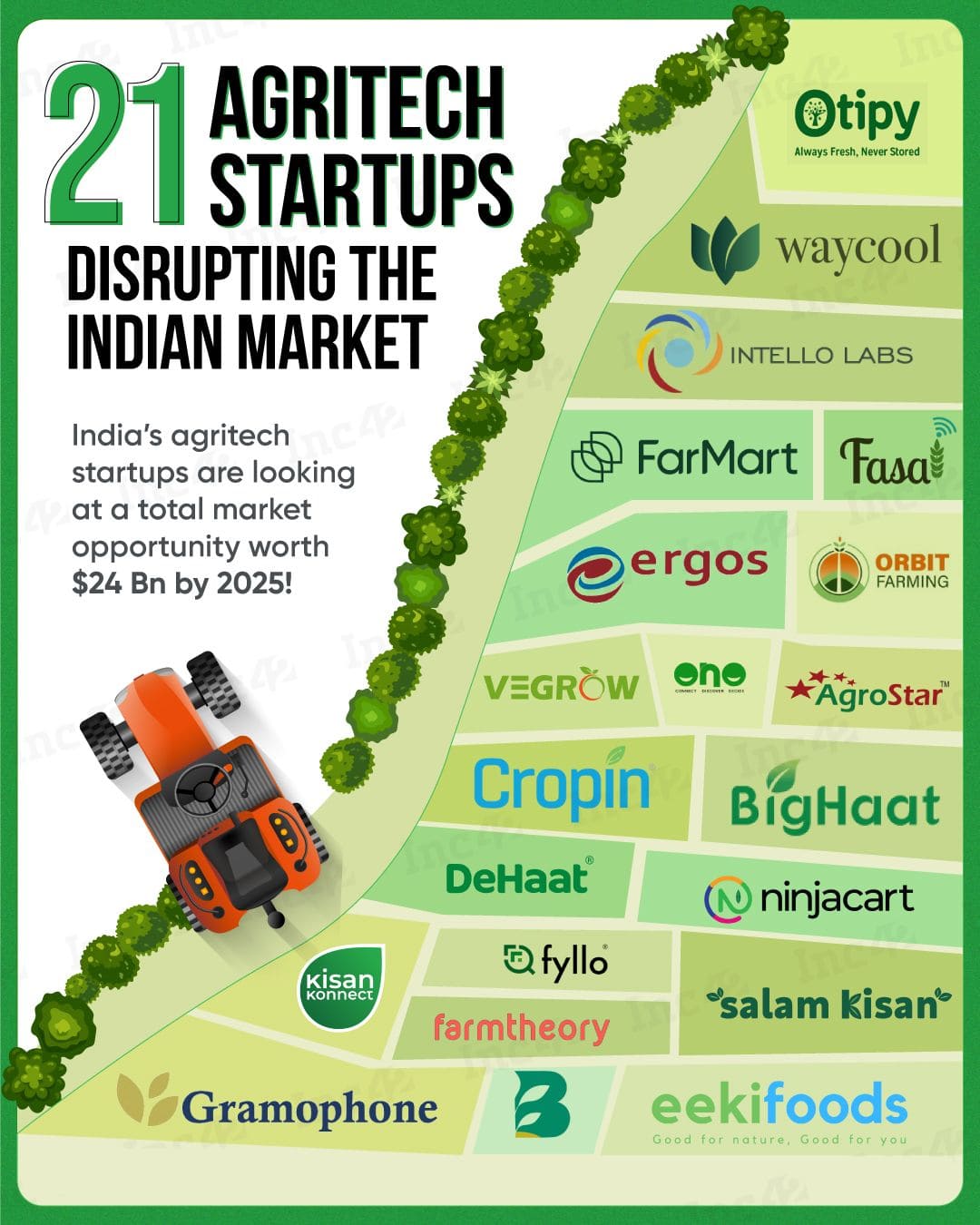India is on the brink of a transformative era in agriculture, with the emergence of agritech startups paving the way for the fourth agricultural revolution. This sector, ripe with innovation and technology, is predicted to reach a market opportunity worth $24 billion by 2025. Embracing advancements from IoT-enabled agricultural practices to AI-powered machinery, India’s agritech sector is redefining the nation’s agricultural landscape.
The Role of Technology in Agriculture
Modern agriculture in India has evolved significantly, leveraging cutting-edge technologies to enhance productivity, efficiency, and sustainability. The integration of Internet of Things (IoT) devices has revolutionized farming practices, enabling real-time monitoring of crops and soil health. Additionally, AI-enabled machines are optimizing various agricultural processes, from planting and irrigation to harvesting and distribution.
Investment and Growth in Agritech
The potential of India’s agritech sector has not gone unnoticed by investors, both domestic and international. Since 2014, agritech startups in India have attracted over $2.4 billion in funding, underscoring the sector’s promising future. This influx of capital is fueling innovation and scaling up operations, driving the agricultural industry towards unprecedented growth.
India’s Agricultural Prowess
According to the Food and Agriculture Organization (FAO) of the United Nations, India holds a significant position in the global agricultural landscape. The country is the largest producer of milk, jute, and pulses, and ranks second in the production of rice, wheat, sugarcane, cotton, groundnuts, and a variety of fruits and vegetables. This robust agricultural foundation, combined with technological advancements, positions India to lead the charge in the fourth agricultural revolution.
The Fourth Agricultural Revolution: A Global Disruption
The advent of the fourth agricultural revolution in India is set to disrupt the global food industry. With a focus on sustainability, efficiency, and innovation, agritech startups are addressing critical challenges such as food security, resource management, and climate change. This revolution is not just about increasing yields but also about creating a more resilient and adaptive agricultural ecosystem.
Noteworthy Agritech Startups in India
India’s agritech landscape is dotted with numerous startups making significant strides in transforming agriculture. Here are some of the noteworthy players:
- NinjaCart: Revolutionizing the fresh produce supply chain, NinjaCart connects farmers directly with retailers and businesses, ensuring better prices for farmers and fresher produce for consumers.
- DeHaat: Providing comprehensive agricultural services, DeHaat offers farmers access to farm inputs, personalized crop advisory, financial services, and market linkages.
- Aibono: Leveraging AI and data analytics, Aibono helps farmers optimize their yields by providing real-time insights and predictive analytics.
- Stellapps: Specializing in dairy technology, Stellapps offers solutions across the dairy supply chain, from milk production to distribution, ensuring quality and efficiency.
- CropIn: A pioneer in farm management software, CropIn uses big data and AI to provide actionable insights to farmers, enhancing productivity and sustainability.
Conclusion
India stands at the cusp of a monumental shift in agriculture, driven by the innovative spirit of its agritech startups. As the country embraces the fourth agricultural revolution, the potential for growth and transformation is immense. With continued investment and technological advancements, India’s agritech sector is poised to not only revolutionize domestic agriculture but also make a significant impact on the global food industry. The future of farming is here, and it is bright, sustainable, and tech-enabled.
By embracing technology and fostering innovation, India is writing the next chapter of its agricultural story, one that promises a prosperous and sustainable future for farmers and consumers alike. Stay tuned as we continue to explore the dynamic world of agritech and its transformative impact on agriculture.


